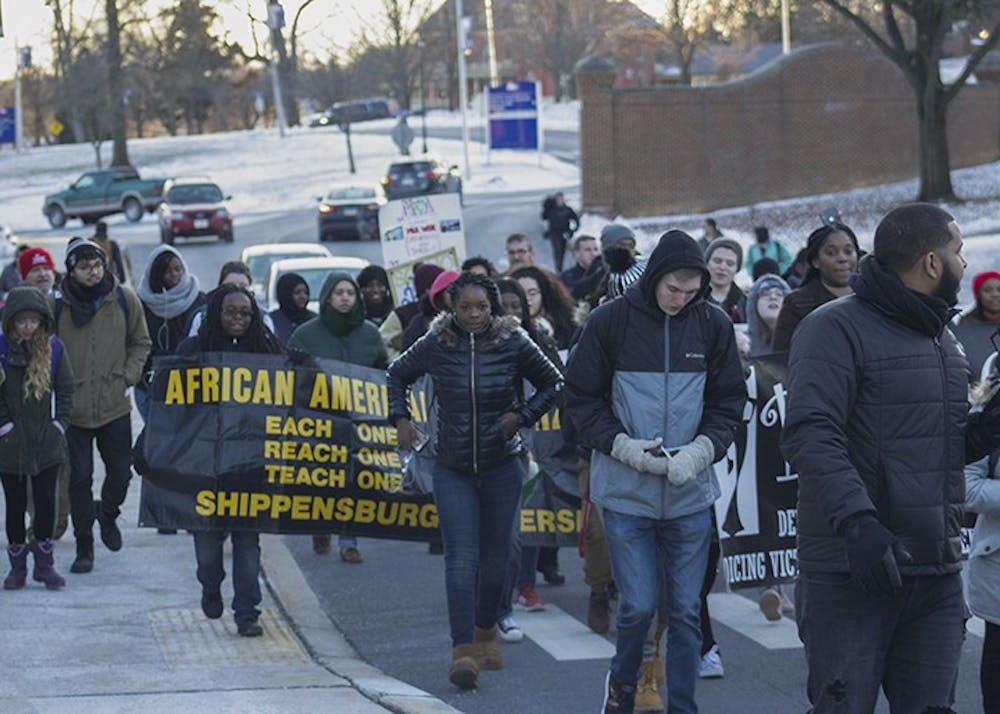Despite frigid single-digit temperatures, Shippensburg University students, faculty and members of the community came together to honor and celebrate the life and legacy of Martin Luther King Jr. Thursday evening at the 32nd annual Martin Luther King Jr. March for Humanity.
The march was preceded by a ceremony in Old Main Chapel, where students and Shippensburg University President Laurie Carter shared why they were marching.
Students from various SU organizations including the Student Government Association (SGA), Office of Multicultural Student Affairs (MSA) and Ask. Communicate. Teach Tolerance (ACT) took the stage to tell the audience what the march meant for them.
“We all have a reason to march and that’s why we’re here today. And that fire, that motivation that we all have is what unites us to make change and to fight for equality and equity in this country and on this campus,” said Ramses Ovalles, SGA senator and MSA member.
President Carter cited the 1947 King essay “The Purpose of Education,” which defines true education as not only intelligence, but character.
“How are you nurturing your education,” Carter asked the students. “Tonight’s march for humanity is a wonderful reminder of King’s work. But the dream requires more of us. Tonight, we march, but tomorrow we must demonstrate that we have the education, the character and the worthy objective that King died for us to have.”
The ceremony culminated with guest speaker, Pennsylvania state Sen. Vincent Hughes giving a powerful speech that not only honored King, but also served as a call to action against the many injustices Americans are still facing today.
During Hughes’ speech, he highlighted the inequitable nature of American society today and what is required to rectify these injustices. He spoke about issues including discrimination, climate change, rising education costs and voting rights.
Hughes also discussed the disparity in the funding of schools from different areas within his district.
Hughes said that while a $160 million school was built in a suburban area in his district — with a state-of-the-art swimming pool and meteorological center — an urban school he visited lacked water in its science classrooms and had textbooks that were printed in 1998.
Hughes termed this injustice “educational apartheid,” and asked the audience to imagine the missed opportunities people they know have suffered from, not because they are not ambitious or intelligent enough, but because they lack the wealth our current system demands to attend better funded K-12 schools, as well as higher education.
Hughes then spoke about how change has been accomplished in the past. From African-Americans gaining the right to vote, to the election of the first African-American president, Hughes told the audience that all of these accomplishments began with young people being active and using their power to transform society.
Before leaving the stage to a standing ovation, Hughes said, “We’ve just got to see Dr. King not as someone who was a dreamer, but someone who was fully engaged in every aspect of his life and fought hard each and every day to turn his dream into reality.”





The Slate welcomes thoughtful discussion on all of our stories, but please keep comments civil and on-topic. Read our full guidelines here.